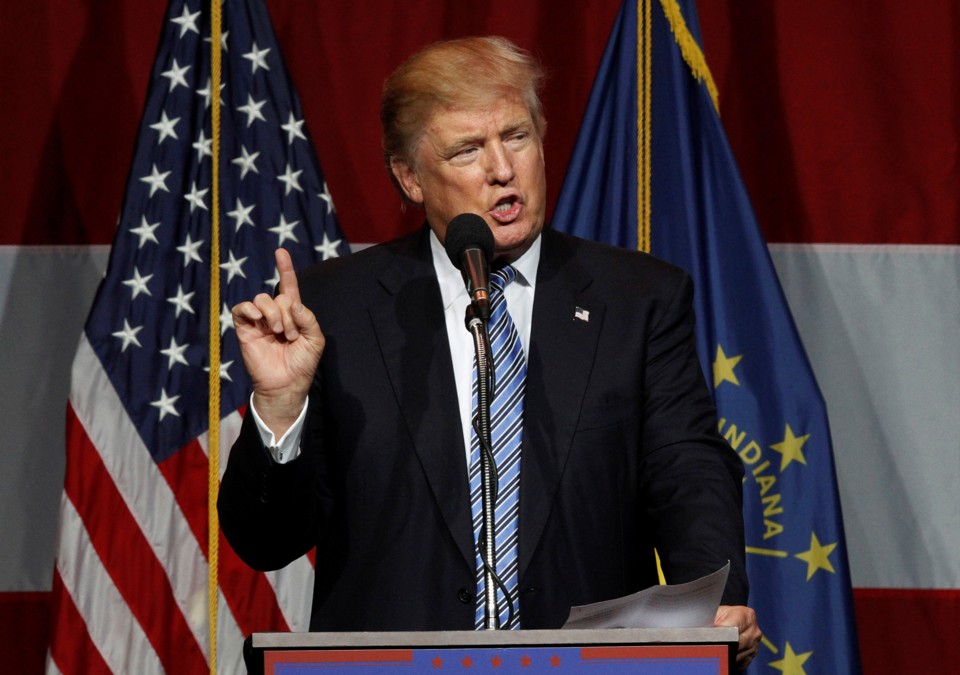Trump and the demise of the American global order

EghtesadOnline: History does not move in neat increments. Sometimes, though, dates are hard to ignore.
So it seems fitting that Donald Trump's election as U.S. president was confirmed on the anniversary of the fall of the Berlin Wall. That day in 1989 marked the symbolic triumph of the liberal, democratic and mostly American-led world order that had ruled a chunk of the globe for the previous half-century. Trump's victory 27 years later marks its demise, according to Reuters.
It is too early to say how the reality-TV star's dark and divisive campaign will translate into policy. At home, he will be constrained by a constitution specifically designed to limit a would-be tyrant's power. For the rest of the world, it remains to be seen whether Trump's actions live up to his more protectionist and belligerent rhetoric.
Nevertheless, the era of American dominance – a period that started at the end of World War Two and reached its peak following the collapse of the Soviet Union – is coming to an end. This has profound consequences for the international order and the global economy.
The former superpower enabled the lowering of trade barriers and relaxation of restrictions on flows of capital around the world, supported by the U.S. dollar. It sponsored international institutions like the World Bank, International Monetary Fund and World Trade Organization, which depended on American support - and funding - for their legitimacy.
The system is underpinned by American military might, projected through the North Atlantic Treaty Organization and a string of alliances with the likes of Japan, South Korea and Saudi Arabia. It also rests on a common set of ideas: faith in democracy, freedom and respect for the rule of law. Tellingly, German Chancellor Angela Merkel - not the president-elect - felt it necessary to reiterate those shared values on the morning after the election.
Trump's victory threatens this entire edifice. He has pledged to renegotiate the North American Free Trade Agreement with Mexico and Canada, and slap tariffs on imports from China. He has raised doubts about U.S. military support for NATO members. Meanwhile, his campaign was regularly characterised by a total lack of respect for democratic principles, judicial independence, a free press and even basic human rights.
This is not to deny the dark side of American hegemony: lofty ideals did not prevent the United States from pursuing destructive wars in Southeast Asia and cynically supporting third-world dictators. More recent attempts to quash Islamic extremism have repeatedly undermined its principles. Meanwhile, rules governing trade and finance often worked to the advantage U.S. banks and corporations over foreign rivals.
It's also true that U.S. influence has been waning for some time. The attacks on Sept. 11, 2001 shattered belief in America's post-war security and launched the country into expensive and damaging wars in Afghanistan and Iraq. The financial crisis that culminated with the collapse of Lehman Brothers in September 2008 not only tipped the Western world into recession but demolished faith in financial and economic elites.
The political backlash sparked by those failures has already taken Britain out of the European Union. Now it has propelled a 70-year-old with a questionable business record and no experience of elected office to the White House.
Yet an explicitly inward-looking America would have a far-reaching impact on the world. Protectionist measures might prompt other countries to retaliate. Investors would seek alternative havens to the dollar. Countries that previously sheltered under the U.S. military umbrella would rearm, adding to regional tensions.
There are no other hegemons ready to step in. The European Union is grappling with a stagnant economy, a wave of migration and the threat of an expansionist Russia. Several of its members could suffer Trump-like insurrections next year. Even if it survives these threats, the EU will struggle to exert much influence beyond its borders for the foreseeable future.
China, meanwhile, will strengthen its grip on Asia: the Philippines and Malaysia are already cosying up to the People's Republic. However, China's extraordinary growth over the last three decades has largely depended on its ability to hitch a free ride on the global system of trade and finance policed by the United States. It is doubtful the world's second-largest economy is in a position to devise or enforce a new set of global rules, even if it wanted to.
American voters have toyed with isolationism and protectionism before. It is possible that future presidents will be able to rekindle its enthusiasm for openness. Trump might even turn out to be more of a pragmatist than he appeared on the stump. That's the early conclusion of investors, who have welcomed the prospect of a fiscal stimulus but seem less worried about an impending trade war. Nevertheless, the election must be seen as a clear indicator that America's unequivocal support for the liberal international order is ending. It may be another 27 years before we can be sure what that means for the world.


